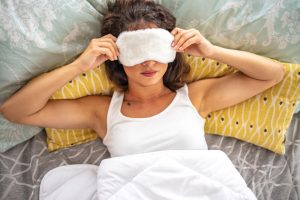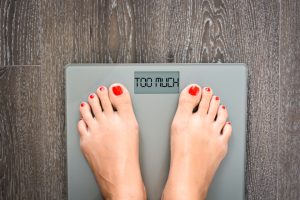How Can Sleep be Linked to Weight Loss?
Hi Everyone! This article will explain the link between sleep deprivation, weight management, and a less-than-optimum physical and mental state of well-being.
Sleep deprivation plagues a quarter of the world’s population, and lack of sleep is linked to being overweight.
In this post, I explain how sleep is crucial for physical and mental health and weight management.
I cover how sleeping more helps you lose weight, and reducing your weight can lead to better sleep. I discuss how sleep mitigates the risk of developing diabetes and other inflammatory conditions.
Plus, what if you exercise a lot and eat healthily – why aren’t you losing weight?
What Happens to the Body During Sleep?
How Much Sleep Do You Need?
Is Sleep Affected by Alcohol?
How Sleep Affects Metabolism
How Sleep is Affected by Oxidative Stress
Is There a Link Between Depression and Lack of Sleep?
Is Stress Linked to Lack of Sleep and Weight Gain?
How Can You Improve Your Sleep?
What I Recommend for a Good Night’s Sleep

What Happens to the Body During Sleep?
During sleep, the tissues in your body get repaired. You also produce Human Growth Hormone (HGH) – from the pituitary gland, which helps keep lower body fat levels and repairs your body, including the turnover of bone, muscle, and collagen.
Functions that happen during sleep increase longevity and healthier body composition.
Our hunger hormones, ghrelin, and leptin, are regulated during good sleep. Ghrelin is responsible for hunger and leptin for feeling full, and lack of sleep causes dysregulation and an insatiable appetite!
Both sleep and exercise induce HGH. Exercise increases HGH and, depending on the type of exercise and for how long, could be detrimental to the body.
The right type of exercise regime for optimum health is essential for sleep, too.
Experts estimate that as much as 75 percent of the human growth hormone is released during sleep.
In normally healthy people, the significant period of HGH release occurs during the first period of Stage 3 sleep stage during the night, about an hour after you first fall asleep.
Stage 3, also known as deep or slow-wave sleep, accounts for about one-quarter of your sleep each night.
Deep sleep is the most restorative in all stages of sleep.
During this stage of sleep, HGH is released and works to restore and rebuild your body and muscles from the stresses of the day.
How Much Sleep Do You Need?
It would help if you aimed to go to bed between 10 and 11 p.m. and, depending on your needs, try sleeping between 8 and 9 hours.

If you feel like you could go back to bed before noon and sleep or self-medicate on caffeine throughout the day, then it is likely that you are not getting good quality sleep and not being kind to your body.
If this is consistent, it will manifest in all sorts of inflammatory physical and mental ailments.
This program supports anyone seeking complete lifestyle change guidance and work because it is not about perfection.
For instance, if you have coffee all day long now and can’t see how you could change that on the program, you will soon find that you reduce it (of your own accord, it seems, with no hardship – because of the health education and the full audio and visual lifestyle support).
Soon, you will have one or two perfect cups in the morning, and it will be enough. It’s true! Coffee is good for many of us, in moderation, after all!
The production of HGH levels peaks in your youth and steadily declines with age.

Seniors, in particular, spend less time in deep sleep, which explains the link between a lack of HGH and other disorders associated with aging.
For example, lower HGH levels correspond with a higher risk of heart disease, obesity, and diabetes.
So, with less sleep, there are more chances of dementia and higher chances of many inflammatory diseases. All of our cells renew during sleep, and hormones regulate themselves.
Have you read How to Prevent Alzheimer’s Disease?
Is Sleep Affected by Alcohol?
Yes, another culprit for our destructive sleep patterns is alcohol. Studies have shown that drinking alcohol makes you fall asleep faster, but the sleep cycles are disturbed.
The likelihood of waking up in the middle of the night after drinking is high, and sleep is not as valuable.

What happens is the body is focused on metabolizing the fermented sugars in the alcohol, and so the (REM) deep sleep cycle is reduced.
Alcohol keeps you in the lighter stages of sleep, so you don’t experience the lovely deep sleep we need.
Alcohol, like a ‘sleeping tablet,’ is a sedative. It takes you from being awake but not to sleep.
So many people think that alcohol helps them to sleep, but it doesn’t. It puts you into a state of sedation, good, natural sleep, and REM isn’t experienced.
The liver is left with the task of detoxifying the sugars in the alcohol, which interferes with the fat-burning process, and the overall quality of sleep is impaired.

Also, I don’t know whether you notice, but on the days when you sleep less or have had excess alcohol the night before, you have an enormous appetite and can crave calorie-rich, high-carbohydrate, and high-fat foods the next day.
Some sweet alcoholic drinks play havoc with your blood sugar levels and start inducing cravings while drinking them!
This is why people nibble after drinking alcohol and why it is so hard to quell intense cravings when you consume sugary alcohol. The more calories in an alcoholic drink, the more of a craving the next day!

The more often glucose and insulin are disturbed, the more we are at risk for illnesses and disease.
How Sleep Affects Metabolism
Studies show that sleep deprivation increases metabolic dysregulation.
When we sleep less, we also have less stable sugar levels (glucose intolerance and insulin resistance) and more cravings, so more cases of diabetes and obesity.
Chronic sleep deprivation is recognized as one of the significant contributors to the escalation of type 2 diabetes – and it can be avoided.
Also, less sleep generally means slower movements and less energy for exercise, which increases the chances of obesity and other chronic inflammation diseases.

Less sleep also disrupts the circadian rhythm (24-hour internal clock).
The circadian rhythm activates many body and brain mechanisms during daylight hours, designed to keep you awake, and then when it is time to sleep, the processes slow down and deactivate ‘alert’ signals.
The circadian rhythm plays a vital role in the sleep/wake cycle, including sleep duration and continuity, which I discuss more in the Personalized Advice section for Insomnia.
How Sleep is Affected by Oxidative Stress
A good amount of sleep increases resistance to oxidative stress, too. Oxidative stress is an imbalance of free radicals and antioxidants in the body.
Free radicals are unstable molecules created when we eat, exercise, and are exposed to smoke and pollution.
Studies have shown that the deprivation of REM sleep alters cellular physiology and can potentially generate free radicals.
Oxidative stress increases chronic inflammation, damaging DNA, proteins, and cells and leaving the body more susceptible to diseases like macular degeneration, Alzheimer’s, prostate cancer, and Parkinson’s Disease.

Antioxidants are produced by foods abundant in vitamins C and E, beta-carotene, lutein, lycopene, zeaxanthin, carotenoids, and selenium, which help fight free radicals.
This anti-inflammatory lifestyle is packed with antioxidant-rich recipes.
See the bottom for some taster recipes for you!
Is There a Link Between Depression and Lack of Sleep?
There’s a Strong Link Between Depression, Inflammation, and Sleep Disturbance
Sleep disturbance may activate the expression of inflammatory genes. These inflammatory cytokines are highly correlated with the occurrence of depressive disorders. Meanwhile, inflammatory activity, in turn, can influence sleep.

Depression and anxiety lead to insomnia, which can lead to depression and anxiety.
In a nutshell, depression and anxiety are linked to chronic inflammation.
These are two of the conditions subscribers have stated they have lifted since they have been on this anti-inflammatory diet and lifestyle.
As the lifestyle reduces chronic inflammation and promotes good health and good sleep, it is not a surprise – and I am delighted, as you can imagine.
You can see why it is essential for your whole physical and mental well-being to get regular, sound sleep.
Sleep is an essential component of life, an important component of the Eat Burn Sleep lifestyle (hence the SLEEP in the title!).
Check the Personalized Advice for Depression support.
Is Stress Linked to Lack of Sleep and Weight Gain?
Mental stress, whether part of or as a result of poor sleep, can enhance appetites, increase weight gain, and decrease motivation for physical activity.
Sleep deficiencies associated with shift work and circadian misalignment may contribute to metabolic dysregulation.

This can also lead to stress, weight gain, obesity, diabetes, chronic inflammation, impaired glucose intolerance, insulin sensitivity, and energy balance.
It is essential to recognize a strong link between sleep and circadian disruption in the development of diseases.
Reducing stress and eating the right foods at the correct times, with the proper movement, on an optimum health program like Eat Burn Sleep will contribute significantly to rectifying this.
My comments were featured in The Sun recently about how to get a good night’s sleep.
What I Recommend for a Good Night’s Sleep:
Many people with poor sleeping patterns for decades have turned their lives around through the Eat Burn Sleep program. Just by being on the program. However, for those who want more comprehensive support for insomnia, check the personalized advice section for Insomnia.
I know I repeat this a lot, but it’s essential: not eating enough of the right foods for the right nutrients can lead your body to starvation, sleep deprivation, and disease susceptibility.
You have often heard me talk about switching your genetics off with the right lifestyle. Taking the right exercise and using techniques to decrease stress to reduce inflammation and for overall good health is essential.

Following the Eat Burn, Sleep program is scientifically proven to optimize mental and physical health and will promote good sleep.
Can Supplements Help Sleep?
Please listen to the supplements talk under Nutrition in the Videos section about my findings with supplements and the companies that produce them.
I was shocked to find out that there are no regulations in place. Always go for reputable brands. Even if it is a reputable store that you are buying from online, check the brand is legitimate.
Studies have shown that many supplements from sources not as well known or bought online contain 83 percent less of the substance than is claimed on the label.
(You can check out many of the products to use on the Yalda Loves page).

Finally, sleep is essential for brain function and performance. This means the quality of your sleep impacts your work, studies, and mood.
The worst form of torture is sleep deprivation – ask new moms and dads about that!
Make sure your whole family is benefitting from enough sleep.
After a good night of sleep, I see “La vie en rose” (life in pink) and find myself a better mother, friend, and partner in life and business.
Summary About Sleep and Weight Loss
To summarize the above, no matter how well you eat and exercise, your efforts will be in vain if you do not get proper sleep.
If you don’t eat nutritiously, exercise correctly, or lead an unhealthy lifestyle, you will be more prone to sleep disturbances.

Sleep is necessary for good health, and it is never too late to get out of poor sleep patterns.
As I mentioned, members of Eat Burn Sleep have reset their bodies into good sleep patterns with the proper nutrition and lifestyle guidance – and lost weight.
There’s more ‘sleep talk’ in the article: What Happens If You Don’t Sleep Enough? Is Coffee Good For You? And The Benefits of Sun Exposure.
You may be interested in my podcast on mental health and chronic inflammation.
Also, you can sample a few of the (300+) anti-inflammatory gut health recipes that are on the program:
Chicken Tagine With Onion & Olive Confit
Make sleep a priority, and your performance at work – and play – will also be positively impacted.
Your mental and physical well-being will be enhanced, you will lose weight, and life will be enjoyed more!
Have a lovely day!


